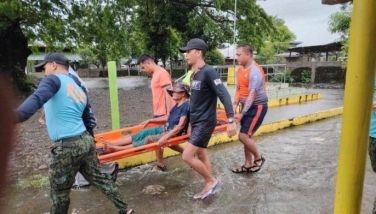Extradition treaties – important tool against transnational crimes
One of the crimes considered as the most heinous and serious worldwide is the sexual abuse and trafficking of minors and children who are among the most vulnerable members of society. Sadly, this type of crime has increased substantially over the past decade.
According to the non-government organization Save the Children, child trafficking refers to the exploitation of girls and boys, primarily for forced labor and sexual exploitation. “Children account for 27 percent of all the human trafficking victims worldwide, and two out of every three child victims are young girls,” the organization says.
At least 120 million girls (about one in 10) have been forced to engage in sex or perform other sexual acts, says the UNICEF, although the actual number is probably much higher.
Last June, a large-scale joint initiative across 39 countries in Europe, Asia, Latin America and Africa dubbed as “Operation Global Chain” targeted high-risk criminal organizations engaged in human trafficking, with particular attention given to child victims and cases involving sexual exploitation, forced criminality and mendicancy. The operation resulted in the arrest of 219 criminals, and over 1,300 potential victims including children were identified. During the week-long operation, 276 new investigations were initiated, while additional 362 suspects were identified.
According to the Interpol, among the most abhorrent cases involved a Hungarian couple who were sexually exploiting six of their children and making them beg on the streets around their village.
It’s not surprising that law enforcement agencies highly prioritize child trafficking and sexual abuse/exploitation cases, working with their international counterparts to go after suspects of these heinous crimes and using extradition as a legal mechanism to bring perpetrators to justice.
Because the arrest of Apollo Quiboloy, the leader of the Kingdom of Jesus Christ religious group, took so long, it has now turned into the most watched case all over the world – taking center stage in the international media. Quiboloy is currently in the FBI’s “Most Wanted” list, having been indicted by a federal grand jury in California for “conspiracy to engage in sex trafficking by force, fraud and coercion and sex trafficking of children; sex trafficking by force, fraud and coercion; conspiracy and bulk cash smuggling” with a federal warrant issued in November 2021 for his arrest.
According to the FBI, Quiboloy is “wanted for his alleged participation in a labor trafficking scheme that brought church members to the United States, via fraudulently obtained visas, and forced the members to solicit donations for a bogus charity, donations that actually were used to finance church operations and the lavish lifestyles of its leaders. Members who proved successful at soliciting for the church allegedly were forced to enter into sham marriages or obtain fraudulent student visas to continue soliciting in the United States year-round.”
Women were allegedly recruited to work as personal assistants or “pastorals” for Quiboloy and that “victims prepared his meals, cleaned his residences, gave him massages and were required to have sex with Quiboloy in what the pastorals called ‘night duty’.”
The Philippines and the US signed an extradition treaty in November 1994 and was ratified by the Senate later, with Presidential Decree 1069, also known as the “Philippine Extradition Law,” as the implementing law. According to the Department of Justice, a US extradition request is expected soon.
Under the extradition law, a formal request is coursed through the Department of Foreign Affairs, then forwarded to the Department of Justice for evaluation, with the request supported by required documentation. A petition will then be filed in the appropriate court that decides if the request has merit, after which an extradition order is issued.
Undoubtedly, each country has its own laws and naturally, President Marcos needs to have Quiboloy face the charges before the local courts first before extradition, especially with more alleged victims locally – many of them girls as young as 12 – now coming out against the religious leader, claiming they were subjected to systematic sexual abuse and manipulation.
Many countries, most especially the United States, are known for being relentless when it comes to sex trafficking cases, especially of minors. As one international enforcer commented one time, “We may not get the trafficker today, we may not get him tomorrow, but we’re going to get him.”
Last year, Leonardo Jimenez-Rodriguez, the leader of a transnational sex trafficking ring that lured young women and girls and employed beatings, threats and psychological abuse to force them into prostitution in New York and elsewhere – was extradited to the US from Mexico.
According to the Special Agent-in-Charge who took part in the operation, Jimenez-Rodriguez’s extradition was the “result of years of extraordinary collaboration with law enforcement agencies spanning multiple countries and investigative jurisdictions.”
Last March, the alleged mastermind of a sex trafficking ring that victimized teenagers from Canada and the US who were forced to appear in pornographic videos was extradited to the US from Spain.
“We cast a wide net in search of Mr. Pratt,” US Attorney Tara McGrath stated, adding they are prepared to bring Michael Pratt to justice and thanking the Spanish government for its assistance.
Today, child sexual abuse is considered to be the most disgusting, abhorrent crime ever worldwide, more so when perpetrators use the name of God in committing this despicable act. Even ordinary prisoners are well known to have their own brand of justice when it comes to sex abusers of children – punishing the offenders by continually raping them and occasionally subjecting them to various kinds of sexual humiliation. Often, these child sex trafficking criminals are placed in separate isolated cells – but only if they are lucky enough.
* * *
Email: [email protected]
- Latest


























